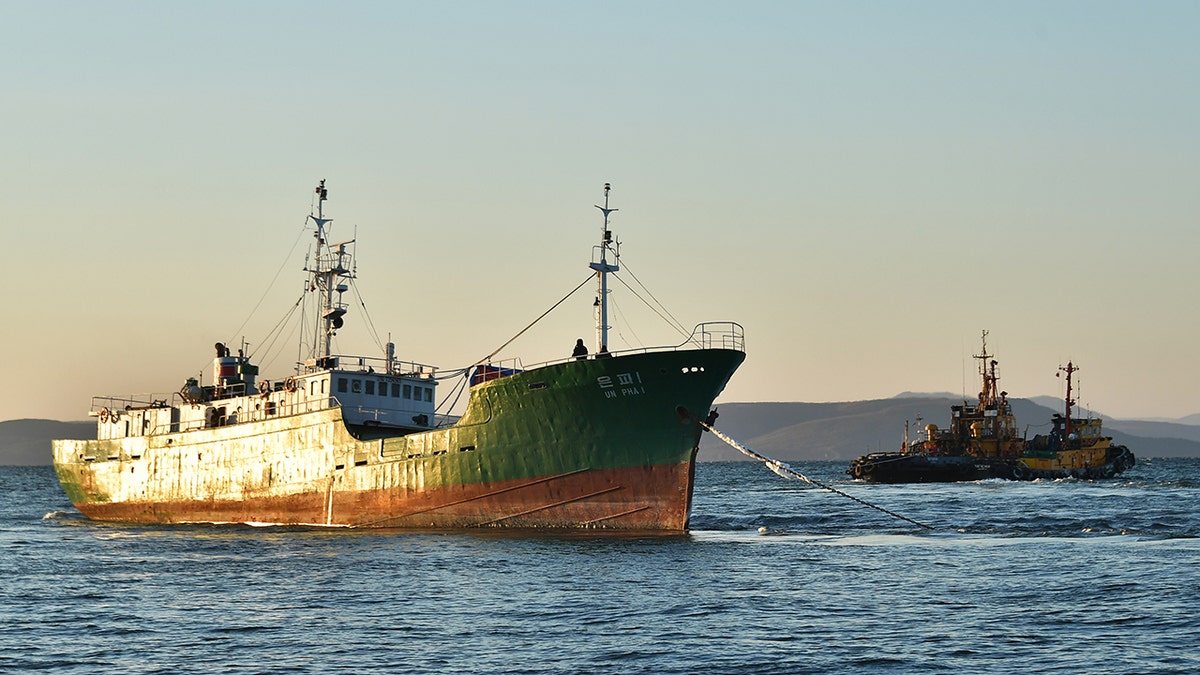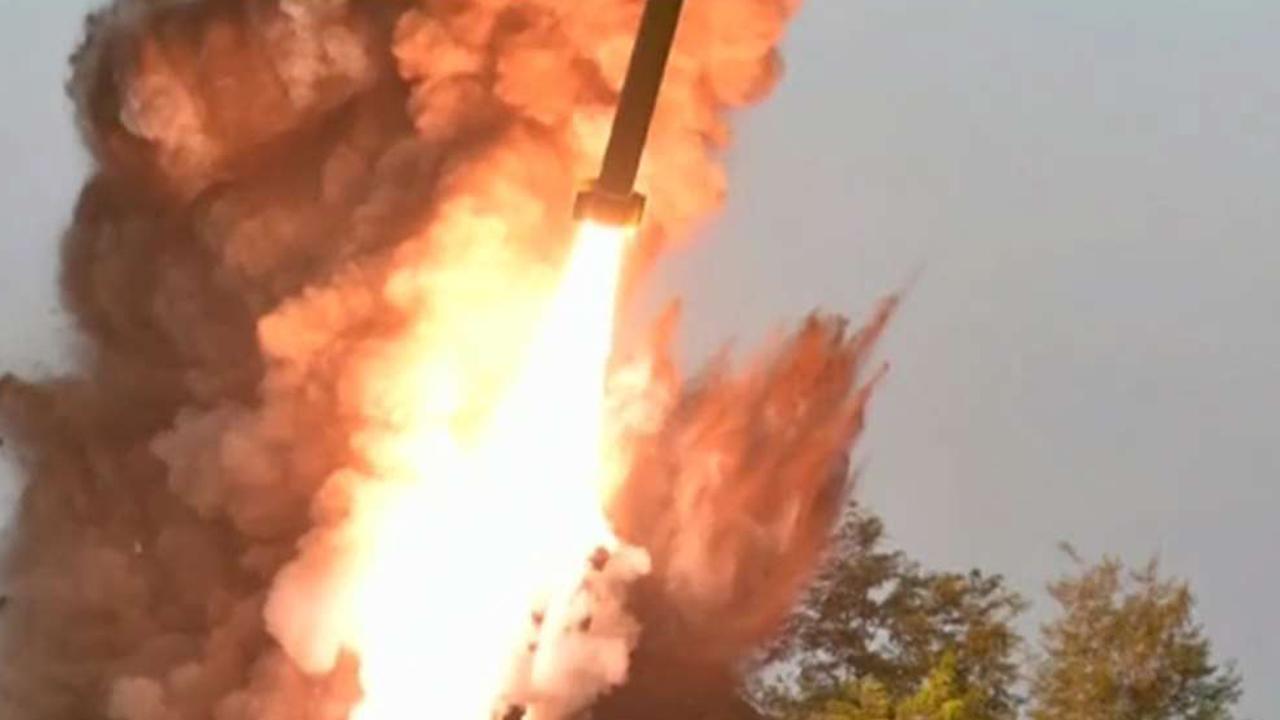Fox News Flash top headlines for Nov. 7
Fox News Flash top headlines for Nov. 7 are here. Check out what's clicking on FoxNews.com
Two North Korean fishermen who authorities say killed 16 other crew members on their boat before fleeing to South Korean waters last week were deported to the communist nation on Thursday, according to officials.
The South Korean Unification Ministry said the two North Koreans, both men in their 20s, were sent back to the North around 3 p.m. local time through the truce village of Panmunjom, five days after they were captured near the East Sea. Lee Sang-min, the ministry's spokesperson, said at a press briefing the two were expelled from the South because they were "heinous criminals" who could not be recognized as refugees under international laws.
"We decided to deport them after determining that accepting them to our society could pose a threat to the lives and safety of our people and that such criminals cannot be recognized as refugees under international law," he told reporters.
According to the South Korean investigation, 19 people were aboard the squid fishing boat when it left the North's Kimchaek port on its east coast in August. While fishing in waters near Russia and elsewhere, the two men allegedly collaborated with another crew member and killed the captain, who they claimed had abused them.

A file picture of a North Korean fishing boat. Officials said that two North Korean fishermen were deported from South Korea after investigators found they killed their crewmembers and dumped their bodies at sea before fleeing and seeking asylum. (Photo by Yuri SmityukTASS via Getty Images))
The trio later killed 15 other fishermen on the boat to cover up their actions, according to officials, allegedly dumping the bodies overboard to cover their actions, according to the Yonhap News Agency.
The three went back to Kimchaek port with the intention of moving to another region of North Korea, but the third fisherman was arrested near the port. The two other fishermen then fled North Korea using the same boat, the Unification Ministry said, citing the government investigation.
When their boat sailed across the sea border last week they were chased by a South Korean Navy ship, which fired warning shots at them.
After two days, the two were captured by the South Korean Navy on Saturday and later told investigators they wanted to resettle in South Korea. South Korean authorities then determined the pair only wanted to avoid North Korean arrest and on Tuesday informed North Korea of their planned deportation, the ministry said.

South Korean Defense Minister Jeong Kyeong-doo answers a lawmaker's question about North Koreans' deportation during a defense committee meeting at the National Assembly in Seoul, South Korea, Thursday, Nov. 7, 2019. (Kim Ju-hyung/Yonhap via AP)
The deportations on Thursday marked the first time South Korea has deported any North Korean national who has come to the South since the end of the 1950-53 Korean War and the first deportation through the truce village of Panmunjom, according to Yonhap.
KIM JONG UN IS 'FASCINATED' BY TRUMP, VIEWS HIM AS FATHER FIGURE, NEW BOOK CLAIMS
South Korea typically has a policy of accepting North Koreans who want to resettle in the South to avoid political oppression and economic poverty at home.

South Korean Unification Ministry spokesman Lee Sang-min briefs the media at a government complex in downtown Seoul, South Korea, Thursday, Nov. 7, 2019. (Kim Seung-doo/Yonhap via AP)
About 32,000 North Koreans have fled to the South since the end of the Korean War, most of them going through China over the past two decades. North Korean defectors are a sore point in relations between the two Koreas, with the North often claiming its citizens are held against their will in the South.
In 2017, there were 1,127 defections from North Korea to the South, according to the BBC.
CLICK HERE FOR THE FOX NEWS APP
The deported men are likely to receive heavy punishment in North Korea, including possible execution. A report from earlier this year by a human rights group identified some 300 public execution sites that sometimes draw hundreds of spectators.
Some South Korean media questioned why the South Korean government made the deportation decision so early and whether it should have allowed the North Koreans to go through a South Korean judicial process first, according to the Associated Press.
North Korean fishing boats have occasionally drifted into South Korean waters, and South Korea has usually accepted those who chose to resettle and repatriated others who wished to return home. Ties have been strained between the two Koreas as the North ramps up pressure on the United States to make concessions in deadlocked nuclear diplomacy.
The Associated Press contributed to this report.


